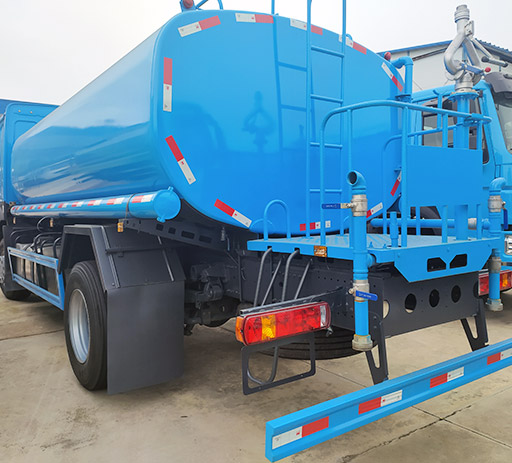Mobile Fuel Trucks for Sale: A Complete Guide

Introduction
As the demand for fuel delivery services continues to grow, mobile fuel trucks have become an essential asset for businesses across various sectors. These specialized vehicles not only provide convenience but also ensure that fuel is delivered safely and efficiently. This article will explore everything you need to know about mobile fuel trucks for sale, including types, benefits, purchasing tips, and practical examples.
What is a Mobile Fuel Truck?
A mobile fuel truck, also known as a fuel delivery truck or fuel transport vehicle, is designed to carry and dispense fuel at various locations. These trucks are equipped with tanks, pumps, and safety features that comply with regulatory standards. Businesses utilize them to refuel equipment, vehicles, and machinery on-site, reducing downtime and increasing efficiency.
Types of Mobile Fuel Trucks
Mobile fuel trucks come in various configurations to cater to different needs. Each type has its unique features tailored to specific industries. Here are some common types:
1. Single-Wall Fuel Tanks
These tanks are constructed with one layer of steel and are typically less expensive. They are best for non-hazardous fuels and smaller operations.
2. Double-Wall Fuel Tanks
Double-wall tanks have an outer layer that provides extra protection against leaks and spills. They are ideal for hazardous fuels and comply with stricter environmental regulations.
3. Composite Tanks
Made from high-density polyethylene and fiberglass, composite tanks are lightweight and resistant to corrosion. They are gaining popularity in various industries due to their durability.
4. Delivery Trucks with Fuel Management Systems
These trucks come equipped with advanced technology for tracking fuel usage and monitoring delivery. They are suitable for businesses looking to optimize their operations.
Benefits of Using Mobile Fuel Trucks
Integrating a mobile fuel truck into your business operations offers numerous advantages. Here are some of the key benefits:
1. Convenience
Mobile fuel trucks allow you to refuel equipment and vehicles on-site, eliminating the need for travel to fueling stations.
2. Cost Savings
Having a mobile fuel truck can significantly reduce fuel costs, especially for businesses requiring frequent fueling operations. Bulk purchasing and efficient delivery help manage expenses.
3. Time Efficiency
By providing immediate fuel delivery, mobile fuel trucks minimize the downtime of machinery and vehicles, thus enhancing productivity and operational efficiency.
4. Safety Compliance
Modern mobile fuel trucks are designed with safety features and comply with environmental regulations, reducing the risks associated with fuel storage and handling.
5. Customization Options
Many manufacturers offer customizable options to meet specific business needs, allowing you to tailor the mobile fuel truck to your operational requirements.
Key Specifications to Consider When Buying a Mobile Fuel Truck
When searching for mobile fuel trucks for sale, several specifications should be considered to ensure you choose the right one for your needs.
1. Tank Capacity
The tank capacity must align with your fueling needs. Common capacitive ranges include 500 to 5,000 gallons, depending on the scale of your operations. Analyze your consumption patterns to determine the best fit.
2. Pumping System
An efficient pumping system is crucial for quick and easy refueling. Consider the flow rate, pump type, and any additional features like automatic shut-off valves.
3. Material and Construction
The construction material of the fuel tank is vital for durability and safety. Choose between options like steel or composite materials based on your operational environment.
4. Vehicle Specifications
The type of vehicle used for the mobile fuel truck can influence performance. Review the engine power, stability, and overall handling characteristics to ensure it meets your requirements.
5. Compliance and Safety Features
Check for compliance with local, state, and federal regulations. Additionally, look for safety features such as spill containment systems, fire extinguishers, and emergency shut-off valves.
Where to Find Mobile Fuel Trucks for Sale
Finding the right mobile fuel truck involves research and evaluation. Here are some avenues to consider:

1. Online Marketplaces
Websites like TruckPaper, eBay, and Craigslist often feature listings for mobile fuel trucks. Make sure to filter your search to find the best options available.
2. Specialized Truck Dealers
Visit dealerships that specialize in fuel delivery vehicles. These dealers can provide valuable insights and may offer warranties or service contracts.
3. Auctions and Expos
Check for local vehicle auctions and truck expos. These events can feature a variety of mobile fuel trucks, offering opportunities to negotiate prices.
4. Manufacturer Websites
Many manufacturers allow customers to browse available models on their websites. This is a good way to view specifications and request quotes directly.

5. Classified Ads and Local Listings
Don’t overlook local newspapers and classified ads. Small operators might list their trucks for sale through these traditional means.
Cost Considerations When Buying a Mobile Fuel Truck
Understanding the financial aspects of purchasing a mobile fuel truck is crucial for making an informed decision. Here are some key cost factors to evaluate:
1. Initial Purchase Price
The initial cost of the mobile fuel truck can vary widely depending on its specifications, age, and condition. A new truck can range from $30,000 to over $100,000, while used options are typically lower.
2. Maintenance and Repairs
Regular maintenance is essential for longevity. Budget for routine checks, repairs, and replacement parts to keep the truck in optimal condition.
3. Insurance Costs
Insurance for mobile fuel trucks is typically higher due to the nature of the cargo. Understand the insurance requirements and obtain quotes to factor in these costs.
4. Fuel Costs
With fuel being a significant expense, strategize your purchasing to find the most cost-effective options. Discounts for bulk purchases can lead to considerable savings.
5. Financing Options
Explore different financing options including loans and leases. Many companies offer financing plans with various terms that could make the purchase more manageable.
Practical Tips for Using Mobile Fuel Trucks Effectively
Once you have acquired a mobile fuel truck, proper usage will further enhance its benefits. Here are some practical tips:
1. Train Your Operators
Ensure that all personnel involved in operating the mobile fuel truck are adequately trained. This includes safety protocols and equipment handling procedures.
2. Maintain Accurate Records
Keep detailed records of fuel usage and delivery schedules. This can help in identifying trends, optimizing fuel purchases, and reducing waste.
3. Schedule Regular Maintenance
Set up a routine maintenance schedule to address wear and tear promptly. Keeping the truck in top condition can prevent unexpected downtime and costly repairs.
4. Utilize Fuel Management Software
Consider using fuel management software to track usage, monitor efficiency, and manage inventory. This technology can provide valuable analytics for better decision-making.
5. Comply with Regulations

Stay informed about local, state, and federal regulations regarding fuel delivery and storage. Non-compliance can lead to hefty fines and legal issues.
FAQ Section
1. What is the average lifespan of a mobile fuel truck?
The average lifespan of a mobile fuel truck can range from 10 to 15 years, depending on usage and maintenance practices.
2. Are mobile fuel trucks environmentally friendly?
With proper storage and handling practices, mobile fuel trucks can be environmentally friendly. They help centralized fuel delivery, reducing the risk of spills and other environmental hazards.
3. Can I finance a mobile fuel truck?
Yes, many dealers offer financing options. You can also explore loans through banks or credit unions tailored for commercial vehicles.
4. What type of fuel can be transported in mobile fuel trucks?
Mobile fuel trucks can transport various types of fuel, including gasoline, diesel, biofuels, and AVGAS. Ensure your truck is suitable for the specific fuel type you intend to carry.
5. How do I ensure safety when operating a mobile fuel truck?
Ensure all operators are trained in safety procedures, conduct regular inspections, and follow regulatory requirements to mitigate risks associated with fuel delivery.
6. What documentation is required to operate a mobile fuel truck?
Operating a mobile fuel truck typically requires vehicle registration, insurance, and adherence to local regulations. You may also need specific permits based on your area.
